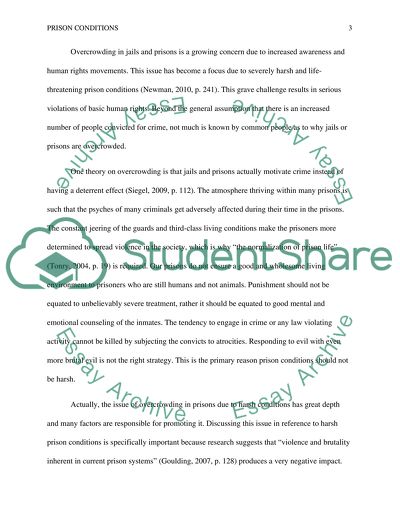Cite this document
(“Essay Against Harsh Prison Conditions Example | Topics and Well Written Essays - 2000 words”, n.d.)
Retrieved from https://studentshare.org/sociology/1496715-essay-against-harsh-prison-conditions
Retrieved from https://studentshare.org/sociology/1496715-essay-against-harsh-prison-conditions
(Essay Against Harsh Prison Conditions Example | Topics and Well Written Essays - 2000 Words)
https://studentshare.org/sociology/1496715-essay-against-harsh-prison-conditions.
https://studentshare.org/sociology/1496715-essay-against-harsh-prison-conditions.
“Essay Against Harsh Prison Conditions Example | Topics and Well Written Essays - 2000 Words”, n.d. https://studentshare.org/sociology/1496715-essay-against-harsh-prison-conditions.


